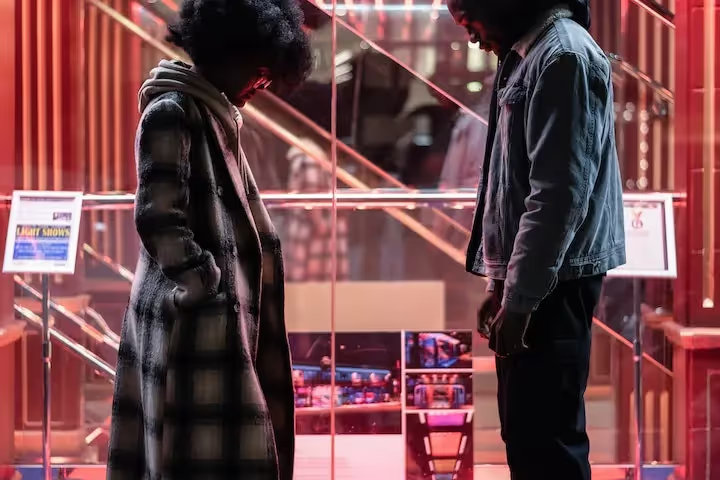A codependent relationship is one where one person takes care, and the other takes advantage. In this kind of relationship, one person's self-worth and...

A codependent relationship is one where one person takes care, and the other takes advantage. In this kind of relationship, one person's self-worth and purpose are tied to how they care for the other person, who is extremely glad to have their needs taken care of. A codependent relationship doesn't have to be romantic, albeit in most cases, it usually is. It can be between family members, employers, colleagues, or friends. A codependent relationship is prevalent in a family or a romantic relationship where one person is a substance abuser. This isn't always the case. The dynamics of a codependent relationship are severely unbalanced.Both parties need each other; one person dedicates more time and energy, forfeiting their own needs, desires and boundaries. At the onset of this relationship, everything might seem fun and pleasant. The caretaker loves feeling needed; they feel useful and like how they can contribute positively to another life. Eventually, everything goes downhill. The caretaker can become a shadow of themselves and lose their principles, values, morals, and purpose. This is why it is important for parties in codependent relationships to seek professional help by going for marriage counseling or couples therapy. The signs of a codependent can sometimes be easy to miss. But there are sure signs that can help anyone spot a codependent relationship. Let's discuss these signs.
The caretaker in the relationship spends all time obsessing over what their partner needs, how to provide it for them and how to prevent them from harming themselves. The taker in the relationship typically displays self-destructive behavior, and the caretaker feels it is their responsibility to save them from themselves. The caretaker spends so much caring for their partner that they are too exhausted to attend to their needs, forget or feel their partner's needs take precedence over theirs.

One person in this parasitic relationship internalizes criticism, tries too hard to please their partner, and displeases themselves. They push themself to overstep their boundaries and behave in the way their partner deems right.
In a codependent relationship, boundaries are typically non-existent or ignored. In a healthy relationship, each person has a right to their feelings, is responsible for their happiness, and has autonomy. But the reverse is the case in a codependent relationship, one individual doesn't respect the other's boundaries, and the other person doesn't clamor for her boundaries to be respected. The person who has no regard for boundaries takes advantage of their partner's lack of strong will to manipulate, sometimes abuse, and control them.
All parties in a codependent relationship lack self-esteem. One party seeks the approval and love of the other to feel good about themselves. They need to be in service to the other person to feel whole or have a sense of purpose. On the other hand, the other party shows their lack of self-esteem by depending on their partner to provide for their needs, and out of their fear that they might leave, they end up controlling and manipulating them. Low self-esteem cripples the person who acts as the caretaker. They blame themselves for the other person's misdemeanor, see themselves in a negative light, and feel like they can't do better than their current partner and they deserve whatever is thrown at them.
A codependent relationship features individuals who have defective communication. One person is unable to fully express themselves because of low self-esteem, fear of upsetting their partner, or inability to decide what they want. The other person uses communication as a weapon to manipulate and control their partner. They can lie and tell half-truths sometimes.

A codependent relationship revolves strongly around dependency. Each person depends on the other wholly for specific needs. In most cases, one party relies on their partner for their financial/material needs, and the partner depends on them for their emotional needs. The partner who seeks to fill their emotional needs is given a purpose- to take care of their partner. They also feel validated. This unhealthy pattern of dependency cripples both parties and keeps their relationship stagnant.
Because one partner usually possesses self-destructive behavior, the other tries to be responsible for them. They pick up the slack and pieces of their partner's irresponsibility. They focus solely on their partners' well-being and cleaning up their mess. They don't always do this out of love but because they love feeling needed. Or they believe their partner would be incapable of surviving without them. This partner feels an excessive sense of responsibility for the other person's actions.
Or an identity dependence is a significant trait in one of the parties in a codependent relationship. One person's goals, beliefs, and actions are constantly changing to suit those of their partners. They continually check in with their partner to determine how they should feel about a situation. This person becomes dependent on their partner for their personality at a point, which is why the other partner easily manipulates and controls them. Individuals who lack self-identity become unable to make life decisions, career changes, and lifestyle choices without their partner's say. And as usual, what their partner says goes.
This kind of relationship usually impedes the growth of one party, making it nearly impossible for them to flourish. It can even get in the way of their relationship with others, for instance, their family members, friends, and colleagues.
The individuals in a codependent relationship fear abandonment and rejection; this is the motivating factor for their behavior. One person takes care of the other because they feel that's the only way they won't leave. At the same time, the other person manipulates and controls them, so they have no choice but to stay.
A codependent relationship is a toxic relationship that holds no benefit for either party involved. At first, it may not seem like that kind of relationship, but if close attention is paid, the signs would be impossible to miss. Some people may also not know the type of relationship they are in. Whichever one it might be, if your relationship features any of the signs mentioned above, it is a codependent relationship. This relationship may cause severe emotional, psychological, and even physical damage to those in it. So it is extremely important to seek professional help by going to couple's therapy or counseling; if you or anyone you know is in this type of relationship.
Yes, EFT is supported by research in behavioral and brain sciences, showing its effectiveness in improving relationship satisfaction and emotional bonds. Studies highlight its impact on creating lasting positive changes in couples' relationships.
Trust is built over time through positive experiences and interactions. However, it can be difficult to say how long it will take to build trust in a particular relationship as it varies from couple to Some signs that trust is present in a relationship include feeling safe to be yourself, being able to rely on your partner, and feeling like you can share anything with them..
During your first couples counseling session, your therapist will likely gather information about your relationship history, current challenges, and individual backgrounds. They may also ask about your goals for therapy and what you hope to achieve. This initial session serves as an opportunity for you and your partner to become comfortable with the therapist and begin building trust in the therapeutic process.
Here are some ideas:
Some thoughtful things you can do for your spouse are:
The time it takes to overcome overthinking will vary depending on each individual's situation. Some people may see improvement after just a few sessions with a therapist, while others may need more time to work through underlying issues that contribute to their overthinking patterns. The important thing is to be patient with yourself and stay committed to taking steps toward overcoming overthinking in your relationship.
Couples who undergo EFT often experience improved emotional connection, reduced conflict, and a stronger secure attachment. The change process promotes healthier interactions and greater satisfaction in the relationship.